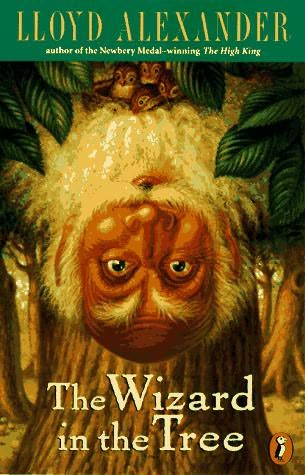 So when I found this odd title, The Wizard in the Tree, at my favorite used bookstore in the bay area (Dark Carnival, go guys go) I had to read it. And while it was not quite as good as some of Alexander's other, more famous work, it was still an incredibly enjoyable read, perfect for middle grade readers in the middle of the pack, ages 8 to 12. At times funny, others violent (there are some murders), this book creates a wonderful anti-Potter definition of the true nature of magic, with some clever environmentalist themes that make it timely, even if it is the silly story of a little girl who finds a wizard in a tree.
So when I found this odd title, The Wizard in the Tree, at my favorite used bookstore in the bay area (Dark Carnival, go guys go) I had to read it. And while it was not quite as good as some of Alexander's other, more famous work, it was still an incredibly enjoyable read, perfect for middle grade readers in the middle of the pack, ages 8 to 12. At times funny, others violent (there are some murders), this book creates a wonderful anti-Potter definition of the true nature of magic, with some clever environmentalist themes that make it timely, even if it is the silly story of a little girl who finds a wizard in a tree.Complete with plucky heroine, curmudgeonly wizard, and eeeevil (yes, so evil he's eeeevil) squire, The Wizard in the Tree is a clever story from a very clever author, whose breadth of work I am just beginning to appreciate.
And seriously, read the Prydain Chronicles, and its awesome companion book of short stories, The Foundling. Awesome.


